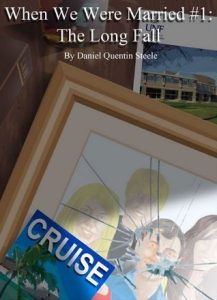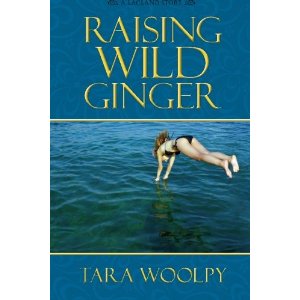 Partial Description from Goodreads:
Partial Description from Goodreads:
Four words ended their marriage. Four words ended his life. And changed hers forever. Four words made both of them face terrible truths about their marriage.
After those four words, nothing would ever be the same. For them. For their children.
Those words would touch the lives of cops and criminals, judges and prosecutors and defenders, the best of men and the worst of them.
The ripples cast by those four words would stretch from the warm waters of the Caribbean to the arid deserts of Mexico, from the government halls of Paris to the moonlit dunes of Matanzas south of St. Augustine.
And, when it was all over, it would finally come down to three lives. And there could be no happy ending.
Review:
**Warning this review uses language that some might find inappropriate, but I wish to give an indication of that used in the book.**
I’m really conflicted about how to rate this book because there are some aspects of it that I really like. Steele is obviously a talented writer and shows a broad and varied knowledge that makes for an interesting assortment of characters. However, there are also some aspects of if that practically curled my toes, and they aren’t easily (or at least briefly) explained.
I think this book comes across as very male. There isn’t anything wrong with that. The author, primary protagonist, and narrator are male, so it shouldn’t be at all surprising that, despite being a romance of sorts, it is also very macho. But as a female reader, there were times I felt alienated by the writing. For example, almost every description of a woman starts (and sometimes ends again) with a description of her tits, twitching ass, and whether or not she was pretty, sexy, and/or fuckable. I’m left wondering if this isn’t one of those differences between men and women situations. While I read these descriptions as fairly objectifying, I accept the possibility that a man might simply see them as descriptions of beautiful women.
While there aren’t very many actual sex scenes, at times, When We Were Married reads like Ron Jeremy’s script closet. Seriously, every cliche male sexual fantasy I could think of finds its way into these pages in some way. Well…there aren’t any fembots, but to be fair, they would have been pretty hard to fit into the plot. There’s the big-breasted nymphomaniac blond who can’t get enough, the cruise ship director, the fit barely (or not quite) legal girl crawling into your bed, the stepdaughter, the older woman, younger woman, woman in uniform, the boss’ mistress, office subordinate, friend’s wife, girlfriend’s slutty best friend (or at least friend), the divorcee, rapes, gang bangs, orgies, and more women begging to be taken in every conceivable way with no expected emotional return than I could count.
The sex scenes themselves are crude. No one in this novel makes love or even just has sex. Everyone fucks porno style. It’s coarse and raw, even when the characters are meant to be bonding on a deep emotional level. And while I have no problem with this in erotica, it felt out of place in a romance. But as I said, while people talk about sex constantly, there isn’t that much of it, so I was able to take 400 or so pages before even my rather mild inner feminist started to take umbrage. (I read an e-version, so I’m not certain of the actual page count.) Up to this point, I would have given the book an easy four stars, but the book is so long, and I was eventually worn down. Despite all of this, the book isn’t really about sex. It plays a large part in causing the turmoil that sets the scene in motion, though, and does have a legitimate place in the novel.
What I really did like about When We Were Married was the depiction of Bill as a good man who strives to do the right thing. He really breaks the mold of the powerful alpha male. He starts the book as a short, fat, balding middle-aged man. He is a king in his working life, and when the day is done, he truly enjoys going home to his wife and children. There are none of the common inferences that such dedication is a chore, and given the chance, he would gladly ease out from under the burden of fidelity. I liked this about him. I also enjoyed the message that there is always a price for doing the right thing. This is something that gets forgotten, and if you forget that there is a price for something, you also forget to appreciate the person who paid for it.
I think When We Were Married is a worthy read. It’s written for adults, and I think men will probably enjoy it more than women. But there is a good story here, and isn’t that what really matters?
